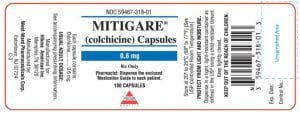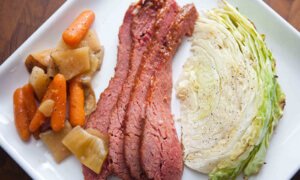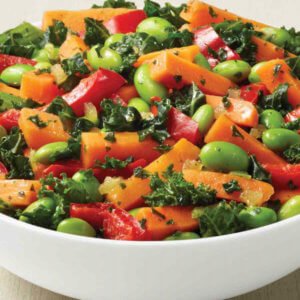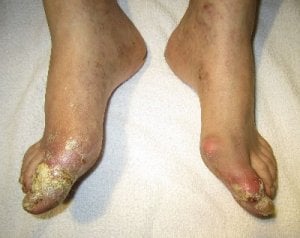Thousands of gout sufferers ask me “What foods can I eat?” Now, the question might be phrased differently. For example “What foods can I eat if I have gout?” But my response is always the same – “It’s not that simple”. So look at What Gout Foods Can I Eat? Because that explains some principles you need to consider when choosing your gout foods.
Unfortunately, many of you want a quick answer. So I’ve even been told to “Stop explaining and just tell me what I can eat”. But I’ve resisted that. As I know it’s impossible to give a simple food list that will be right for every gout sufferer. Up until today!
Because now we have a uric acid study on humans that lists the foods you can eat with gout[1].
What Foods Can I Eat Purpose
I wrote this article for GoutPal Foodies. Because the purpose of GoutPal.com is to encourage gout sufferers to work with their professional advisers. Then, their gout diet supports their treatment plan.
But there is a danger you will ignore doctors. As you focus only on a few food items. So here is my explanation of this uric acid study. Where I start with the list of foods you can eat. Then show you how to turn it into a reliable gout management plan. By moving from Foodies to become a GoutPal Dieter.
What Foods Can I Eat Report
This is a study of 16,760 Americans. Who ate 63 different foods spread across various food groups:
- Alcohol
- Beverages
- Dairy Products
- Desserts and Sweets
- Fish and Seafood
- Fruit
- Grains
- Legumes and Nuts
- Grains
- Meat
- Vegetables
- Other Food Items
So there is ample variety to create a healthy diet. But here I focus on the 8 foods that are associated with lower uric acid:
- Skimmed Milk
- Brown Bread
- Cold Cereal
- Eggs
- Peanuts
- Cheese
- Margerine
- Non-citrus Fruit
Straightaway, you see how restricted your diet becomes if you only eat foods that are beneficial. Which is similar to the problem with low-purine diets. Because no gout sufferer can sustain these highly restricted diets. So maybe there’s a better approach.
Which Healthy Eating Pattern Can I Eat With Gout?
As well as looking at individual foods, the study compares groups with different eating patterns:
- DASH
- Healthy Eating
- Mediterranean
Now, these are more practical ways to find sustainable groups of foods you can eat with gout. But this analysis shows that diet has only a very small impact on uric acid.
Having said that, it’s important to note:
- This study specifically excludes gout sufferers
- With healthy eating patterns, gout dieters can improve average results by preferring more foods that reduce uric acid.
What Foods Are Better Than Parents?
Finally, I’ve asked a stupid question to highlight the most important confirmation from this report. Because the authors point out that uric acid differences from genetic factors are much more important than food. So you might have to accept that foods are not relevant.
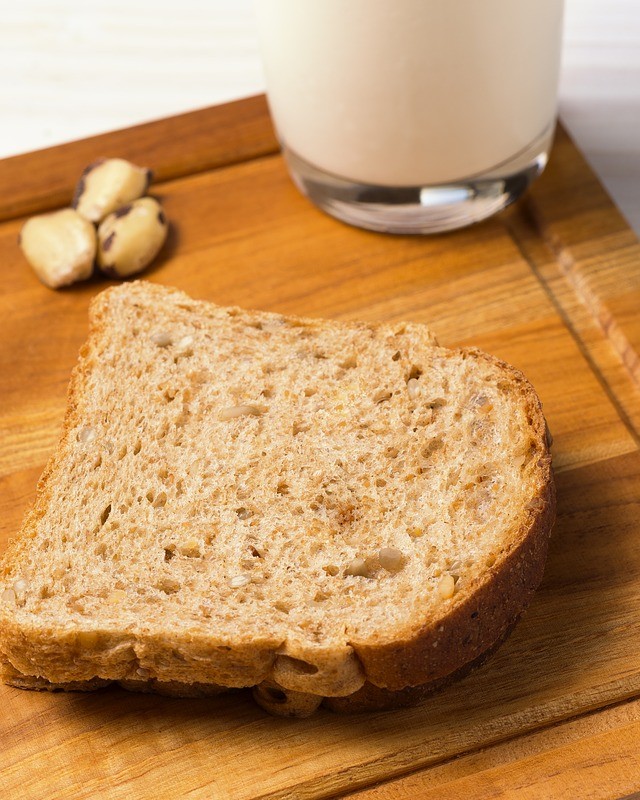
What Foods Can You Eat With Gout?
You can see it is unrealistic to choose a small group of foods that are known to reduce uric acid. In fact, if your gout is inherited from one or both of your parents then foods might be irrelevant to your gout recovery plan.
First, you should discuss your diet plans with your doctor. But perhaps you’re not sure where to start? In which case I suggest you start one of the gout foundation diets. Then you can improve this for uric acid control once you’ve established a healthy starting point.
For personal help with discussing gout diet with your doctor, just ask. You can use the gout forum. Or the Feedback Form below.
Return from What Foods Can I Eat With Gout to continue your GoutPal Plan for Gout Dieters. Or to your GoutPal Plan for Gout Foodies.
When To Start Allopurinol Related Topics
Please remember: to find more related pages that are relevant to you, use the search box near the top of every page.
Common Terms: bread
Other posts that include these terms:
- Vitamin B for Gout Herbalists
- What Foods Cause Gout?
- Natural Medicine For Gout
- Alkaline Gout Diets
- Flaxseed Oil and Gout
What Foods Can I Eat References
- Major, Tanya J., Ruth K. Topless, Nicola Dalbeth, and Tony R. Merriman. “Evaluation of the diet wide contribution to serum urate levels: meta-analysis of population based cohorts.” Bmj 363 (2018): k3951.
Please give your feedback
Did this page help you? If yes, please consider a small donation. Your donations help keep GoutPal's gout support services free for everyone.
If not, please tell me how I can improve it to help you more.
- YouTube
- The gout forums.





